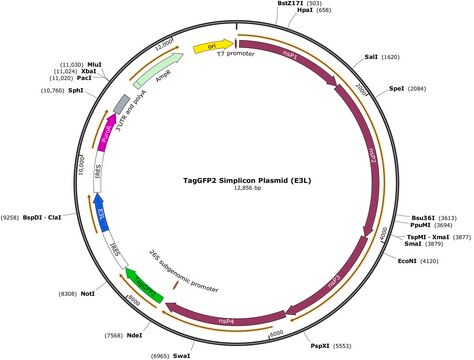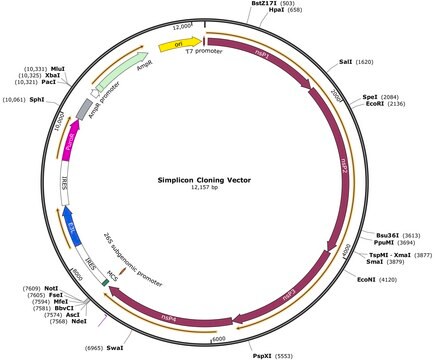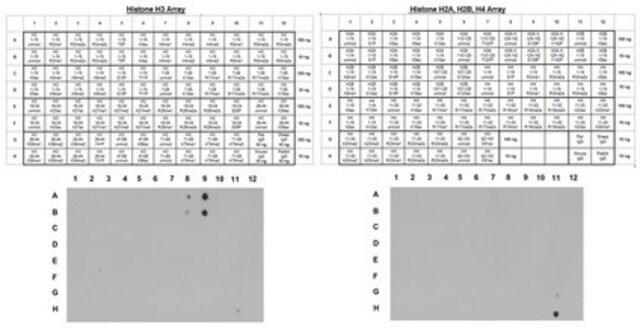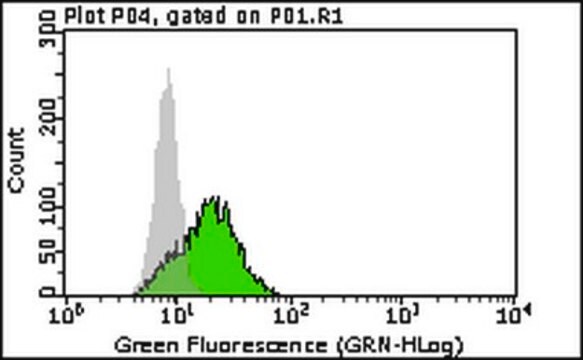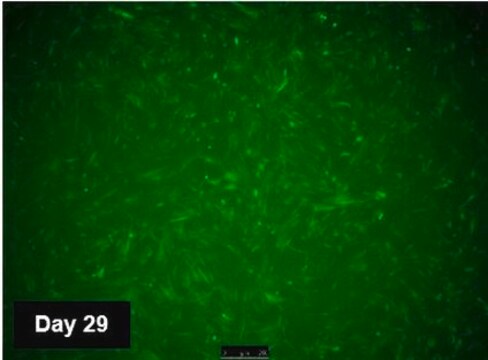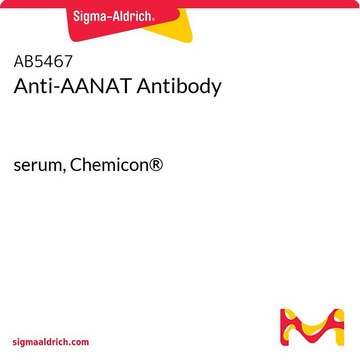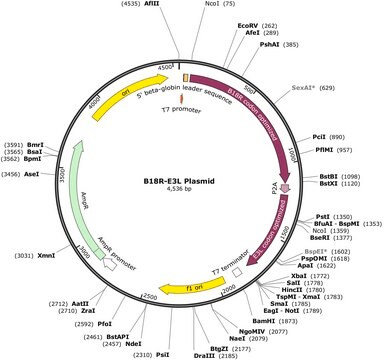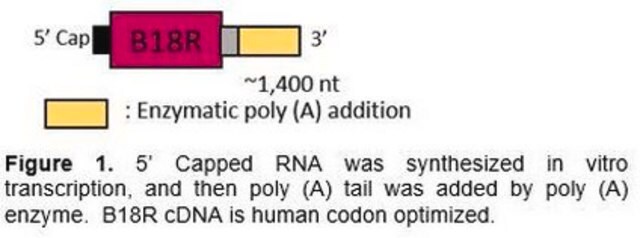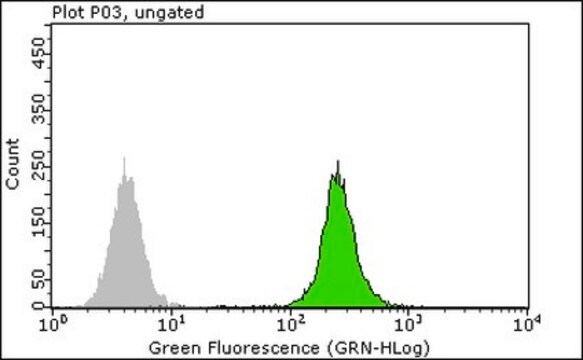MABE1078
Anti-TAF10/TAFII30 Antibody, clone 23TA-1H8
ascites fluid, clone 23TA-1H8, from mouse
Sinónimos:
Transcription initiation factor TFIID subunit 10, STAF28, TAF(II)30, TAFII-30, TAFII30, Transcription initiation factor TFIID 30 kDa subunit
About This Item
Productos recomendados
biological source
mouse
Quality Level
antibody form
ascites fluid
antibody product type
primary antibodies
clone
23TA-1H8, monoclonal
species reactivity
human
should not react with
mouse
technique(s)
ChIP: suitable
immunocytochemistry: suitable
immunoprecipitation (IP): suitable
western blot: suitable
isotype
IgG1κ
NCBI accession no.
UniProt accession no.
shipped in
dry ice
target post-translational modification
unmodified
Gene Information
human ... TAF10(6881)
General description
Specificity
Immunogen
Application
Western Blotting Analysis: A representative lot detected TAF10 (TAFII30) in HeLa nuclear extracts as well as in SPT20-containing SAGA immune complex, but not in ADA2a-containing ATAC immune complex (Nagy, Z, et al. (2010). Cell. Mol. Life Sci. 67(4):611-628).
Western Blotting Analysis: Representative lots detected the presence of TAF10 (TAFII30) in TAFII30-containing complexes immunoprecipitated from HeLa nuclear extracts (Nagy, Z., et al. (2009). Mol .Cell. Biol. 29(6):1649-1660; Wieczorek, E., et al. (1998). Nature. 393(6681):187-191).
Immunoprecipitation Analysis: Representative lots immunoprecipitated TAF10- (TAFII30-) containing complexes from HeLa nuclear extracts (Nagy, Z., et al. (2009). Mol .Cell. Biol. 29(6):1649-1660; Wieczorek, E., et al. (1998). Nature. 393(6681):187-191).
Epigenetics & Nuclear Function
Transcription Factors
Quality
Western Blotting Analysis: A 1:1,000 dilution of this antibody detected TAF10/TAFII30 in 10 µg of A431 cell lysate.
Target description
Physical form
Storage and Stability
Handling Recommendations: Upon receipt and prior to removing the cap, centrifuge the vial and gently mix the solution. Aliquot into microcentrifuge tubes and store at -20°C. Avoid repeated freeze/thaw cycles, which may damage IgG and affect product performance.
Other Notes
Disclaimer
¿No encuentra el producto adecuado?
Pruebe nuestro Herramienta de selección de productos.
Storage Class
12 - Non Combustible Liquids
wgk_germany
WGK 1
flash_point_f
Not applicable
flash_point_c
Not applicable
Certificados de análisis (COA)
Busque Certificados de análisis (COA) introduciendo el número de lote del producto. Los números de lote se encuentran en la etiqueta del producto después de las palabras «Lot» o «Batch»
¿Ya tiene este producto?
Encuentre la documentación para los productos que ha comprado recientemente en la Biblioteca de documentos.
Nuestro equipo de científicos tiene experiencia en todas las áreas de investigación: Ciencias de la vida, Ciencia de los materiales, Síntesis química, Cromatografía, Analítica y muchas otras.
Póngase en contacto con el Servicio técnico